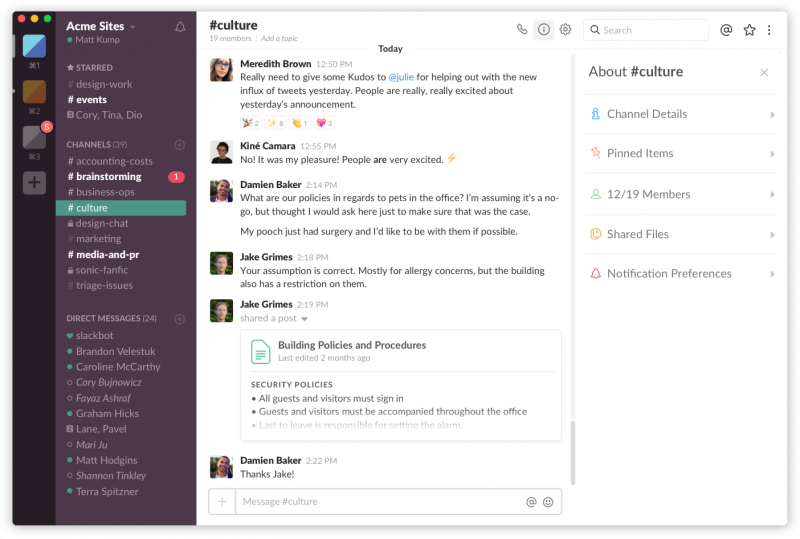
The default setting is that any user can create a new Slack channel. In Slack, channels are workspaces that users can create for discussion around specific topics, projects, or teams.

Slack groups chats into channels based on the topic. Teams groups chats mostly by internal teams (hence the name of the app). Slack and Teams organize chats in different ways: Microsoft Teams has a more streamlined interface ⭐⭐⭐ Need a Microsoft email address to join ⭐⭐⭐⭐⭐ Anyone can join with email address (including guest channels) ⭐⭐⭐⭐ No limit (but search doesn't provide context-only shows specific searched message) ⭐⭐⭐⭐ Up to 10,000 searchable messages on free plan advanced search options ⭐⭐⭐⭐ 1TB (but only on Enterprise top tier package) Take a look, and then read on for details on the main differences between the two apps. Here's an overview of how some of the main chat app features of Slack and Teams stack up against each other. While either app can support as many or as few participants as you want, Teams tends to scale better in terms of user experience. If you already use another app like Zoom, Slack tends to be better for chat. If you use calls as much as chat and you want a built-in tool, you'll go with Teams. If you're a Microsoft-focused organization, you'll want Teams. If you have an existing (non-Microsoft) tech stack of tools that are already embedded into how you work as a team, Slack is almost definitely going to be your best option. Choosing between Slack and Microsoft Teams really boils down to a few basic things: Microsoft Teams: Which should you choose?Īt the core, both Teams and Slack are business messaging apps that help teams stay in touch and share files securely across various devices. Here, I'll dig into what differentiates Slack and Teams, so you can make a decision based on what your dealbreakers are. That's great news for users, but it does make choosing between Teams and Slack even harder. If you notice there's a feature that Slack doesn't have but Teams does, it's likely you'll see it appear in the next Slack release (and vice versa, of course).

Since the pandemic, both apps have been consistently upping their game to compete for best team chat app on the market. They also have a lot in common, but the experience of using these chat apps is quite different. I've used both Slack and Teams a lot over the years, and honestly? I like both of them.


 0 kommentar(er)
0 kommentar(er)
